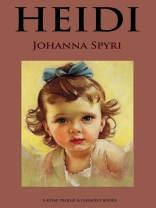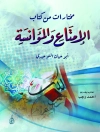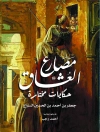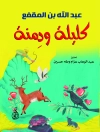THROWING HERSELF IN HER GRANDFATHER’S ARMS, SHE HELD HIM TIGHT
She climbed so fast that she could soon discover, first the tree-tops, then the roof, finally the hut. Now she could see her grandfather sitting on his bench, smoking a pipe. Above the cottage the fir-trees gently swayed and rustled in the evening breeze. At last she had reached the hut, and throwing herself in her grandfather’s arms, she hugged him and held him tight. She could say nothing but ‘Grandfather! grandfather! grandfather!’ in her agitation.
The old man said nothing either, but his eyes were moist, and loosening Heidi’s arms at last, he sat her on his knee. When he had looked at her a while, he said: ‘So you have come home again, Heidi? Why? You certainly do not look very cityfied! Did they send you away?’
‘Oh no, you must not think that, grandfather. They all were so good to me; Clara, Mr. Sesemann and grandmama. But grandfather, sometimes I felt as if I could not bear it any longer to be away from you! I thought I should choke; I could not tell any one, for that would have been ungrateful. Suddenly, one morning Mr. Sesemann called me very early, I think it was the doctor’s fault and—but I think it is probably written in this letter;’ with that Heidi brought the letter and the bank-roll from her basket, putting them on her grandfather’s lap.
‘This belongs to you, ‘ he said, laying the roll beside him. Having read the letter, he put it in his pocket.
‘Do you think you can still drink milk with me, Heidi?’ he asked, while he stepped into the cottage. ‘Take your money with you, you can buy a bed for it and clothes for many years.’
Yazar hakkında
Unassuming in plot and style, ‘Heidi’ may none the less lay claim to rank as a world classic. In the first place, both background and characters ring true. The air of the Alps is wafted to us in every page; the house among the pines, the meadows, and the eagle poised above the naked rocks form a picture that no one could willingly forget. And the people, from the kindly towns-folk to the quaint and touching peasant types, are as real as any representation of human nature need be. Every goat even, has its personality. As for the little heroine, she is a blessing not only to everyone in the story, but to everyone who reads it. The narrative merits of the book are too apparent to call for comment.As to the author, Johanna Spyri, she has so entirely lost herself in her creation that we may pass over her career rather rapidly. She was born in Switzerland in 1829, came of a literary family, and devoted all her talent to the writing of books for and about children.Since ‘Heidi’ has been so often translated into English it may well be asked why there is any need for a new version. The answer lies partly in the conventional character of the previous translations. Now, if there is any quality in ‘Heidi’ that gives it a particular charm, that quality is freshness, absolute spontaneity. To be sure, the story is so attractive that it could never be wholly spoiled; but has not the reader the right to enjoy it in English at least very nearly as much as he could in German? The two languages are so different in nature that anything like a literal rendering of one into the other is sure to result in indirectness. Such a book must be not translated, but re-lived and re-created.To perform such a feat the writer must, to begin with, be familiar with the mountains, and able to appreciate with Wordsworth.The silence that is in the starry sky, The sleep that is among the lonely hills.The translator of the present version was born and reared in a region closely similar to that of the story. Her home was originally in the picturesque town of Salzburg, and her father, Franz von Pausinger, was one of the greatest landscape painters of his country and generation. Another equally important requisite is knowledge of children. It happens that this translator has a daughter just the age of the heroine, who moreover loves to dress in Tyrolese costume. To translate ‘Heidi’ was for her therefore a labor of love, which means that the love contended with and overcame the labor.












